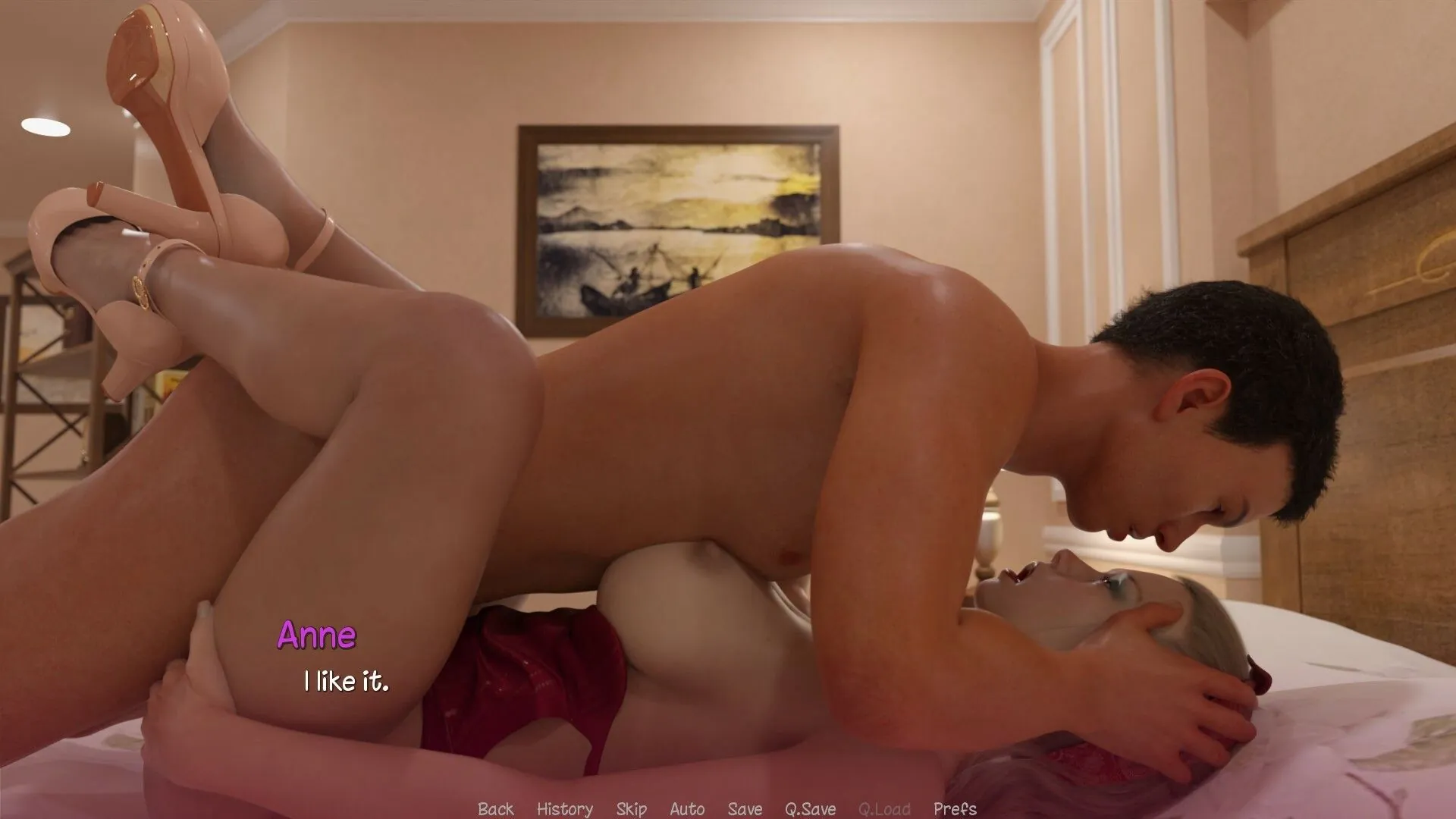
Play Welcome to Free Will
Welcome to Free Will review
Explore Gameplay, Characters, and Tips for Welcome to Free Will
Welcome to Free Will is an interactive adult-themed game that combines storytelling with player-driven choices. This guide dives into the core aspects of Welcome to Free Will, offering insights into its gameplay, characters, and strategies to maximize enjoyment. Whether you’re new or looking to deepen your understanding, this article will walk you through everything you need to know about the game.
Understanding Gameplay and Mechanics in Welcome to Free Will
Ever feel like you’re just along for the ride in a game, watching a story unfold without your input? 🤔 I know I have. That’s why the Welcome to Free Will gameplay loop feels so revolutionary. From the moment you boot it up, you’re not just a player; you’re the architect of your own experience. This isn’t a passive watch—it’s an active, engaging journey where every decision, from what you say to where you go, ripples out and changes the world around you. It’s this incredible sense of agency that makes learning how to play Welcome to Free Will such a thrilling prospect.
The core of the experience is its interactive story Welcome to Free Will is famous for. You navigate a beautifully rendered world not through combat or complex puzzles, but through conversation, relationship building, and the careful budgeting of your most precious commodities: time and attention. 🕰️ It’s a refreshing take that prioritizes emotional intelligence and strategic thinking over quick reflexes.
How Does the Game Flow?
The structure of Welcome to Free Will is deceptively simple, yet it contains incredible depth. The game is divided into chapters, each representing a period of time in the protagonist’s life, like a week or a month. Your goal isn’t to “win” in a traditional sense, but to guide your character toward the future you envision for them by forging bonds and pursuing goals.
Each day, you’re given a set number of action points. You can spend these to move between beautifully crafted locations—the bustling city center, a quiet park, a cozy apartment. At each location, you’ll find characters to talk to, activities to perform, or personal tasks to complete. Initiating a conversation might cost one point, while working on a personal project like writing or painting could cost two. This is where the first layer of strategy in the game mechanics Welcome to Free Will employs comes into play. Do you use your last point to check in on a friend who seems down, or do you head home to finally finish that novel chapter? There’s no “right” answer, only consequences.
I remember one playthrough where I was determined to max out my character’s artistic skill. I spent every spare moment painting, ignoring almost everyone. I became a brilliant artist, but the story ended with my character being incredibly lonely and regretting the connections they’d lost. It was a powerful, self-inflicted lesson on balance! 😥
To give you a clearer picture, here’s a table breaking down some common actions and their potential effects on your story’s direction:
| Player Action | Resource Cost | Potential Gameplay Effects |
|---|---|---|
| Initiate a deep conversation with a main character | 2 Action Points | Significantly increases relationship meter, may unlock a unique, story-altering confession. |
| Visit the library to study | 1 Action Point | Raises intellect stat, might lead to new, smarter dialogue options in future interactions. |
| Take a part-time job at the café | 3 Action Points | Earns in-game currency, but consumes most of the day, limiting other activities. |
| Explore a new, uncharted part of the city | 1 Action Point | Could lead to a chance encounter with a new character or the discovery of a key item. |
Key Player Choices and Their Impact
If the daily flow is the heartbeat of the game, then the player choices in Welcome to Free Will are its soul. 🫀 This is where the game truly earns its name. You are constantly presented with dialogue options, but don’t expect simple good/evil or nice/mean binaries. The choices are nuanced, reflecting subtle differences in tone, honesty, and intention.
A choice isn’t just about what you say, but when you say it. Choosing to confront a friend about a secret you discovered will have a dramatically different outcome if you do it immediately in a crowded room versus waiting to talk privately in a calm setting later. The game remembers everything, and characters have long memories. A flippant remark you made in Chapter 2 might be brought back up in a heated argument in Chapter 7.
The impact is profound. Major narrative branches aren’t triggered by a single big decision, but by the cumulative weight of dozens of smaller ones. Your collection of choices will determine:
* Which character arcs you unlock and complete.
* The final fate of your relationships—will they be strong, fractured, or non-existent?
* The ultimate ending you receive, of which there are dozens.
My biggest “wow” moment was realizing I had accidentally locked myself out of a romance subplot because I had consistently chosen independent, career-focused responses weeks earlier. The game hadn’t punished me; it had simply respected my choices and told a different, still compelling, story. That’s the magic of the interactive story Welcome to Free Will delivers.
Managing Resources and Time in the Game
You can’t do everything, and that’s the point. Mastering the resource management Welcome to Free Will requires is the key to experiencing everything you want to see. This goes far beyond just action points. You also need to manage your character’s energy, money, and even emotional state.
Think of it like a real life. If you overschedule your day with back-to-back social events, your character will become tired and stressed, which can lead to negative outcomes or even cause you to fail certain tasks. 😴 Sometimes, the best use of an afternoon is to spend zero action points and just “Rest at Home” to recharge.
This is the core of time management in Welcome to Free Will. The calendar is always moving forward, and major story events happen on fixed dates. You might have only three in-game days to earn enough money to buy a concert ticket for you and a friend, or a crucial exam might be coming up that requires several study sessions to pass. This creates a wonderful, gentle pressure that makes your planning feel meaningful.
Here’s my personal, actionable advice for effective resource management Welcome to Free Will style:
Prioritize ruthlessly. You can’t be everyone’s best friend and a master of every skill in one playthrough. Decide on one or two core goals for your character and let those guide your daily decisions.
- Balance your time. Mix social activities with personal projects and rest. A burned-out character is an ineffective one.
- Don’t be afraid to miss out. Part of the game’s design is that you will miss some scenes. This makes each playthrough unique and gives you a reason to go back and try again with a new focus.
- Talk to everyone early on. The first chapter is for exploration. Use it to meet all the characters and get a feel for who you might want to invest your time in later.
Ultimately, the game mechanics Welcome to Free Will is built upon are designed to mirror life’s beautiful constraints. Your freedom is absolute, but it exists within a framework of limited time and energy. Learning to navigate this system—to weigh the cost of every action against the potential reward—is what makes mastering how to play Welcome to Free Will so deeply satisfying. It’s not about seeing everything at once; it’s about crafting a story that feels authentically yours. ✨
Welcome to Free Will offers a rich, choice-driven experience where your decisions shape the story and character dynamics. By understanding its gameplay mechanics and managing your in-game resources wisely, you can unlock diverse scenes and deepen your engagement. Dive in, explore the possibilities, and enjoy the unique narrative journey that Welcome to Free Will provides.






















